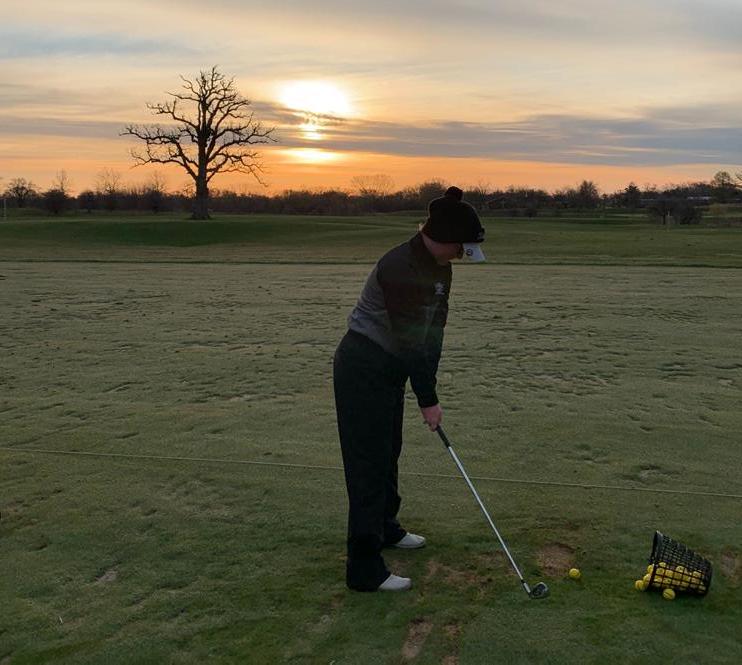
5 minute read
Sit Down with a Senator
Sit down with the Senator
One of our editors sat down for a conversation with Senator Mike Braun on his unconventional political career and the importance of working across the aisle while still holding true to one’s values
Advertisement
By Henry Holloway, Copy Editor
After being elected to the U.S. Senate in 2018, Senator Mike Braun(R-IN) came to Washington D.C. in the hopes of bringing real world experience to counter what he saw as a disappointing federal government. “I wanted to have an impact because I was very disappointed in the way the federal government was working,” Braun said. So I said rather than complain about it, I’m gonna see if I can run and win and do something about it. Braun notes that his background differs from many in government. “Most get into the farm system of being like a U.S. Representative, hang around ten years, build a career out of it,” Braun said. “I was never interested in doing that.” After serving as owner and CEO of Meyer Body, a farmer and trucks accessories company, Braun believes that his experience in the business world is necessary in our nation’s capital in order to serve the interests of working Americans. “Main Street is running your own business, the school of hard knocks, Main Street,” Braun said. “That’s what I probably bring to the Senate almost more than any other Senator because I did it so long before I actually decided to run for Senate.” Braun held an interest in politics at a young age. He started out by participating in the 1974 Youth for Lugar campaign at Wabash College. However, it was a call for his wife to participate on the local Jasper school board that led to Braun’s political involvement.
“She was too busy doing other things, and she has still her own business, and said ‘no I can’t,’” Braun said. “Maybe my husband would like to do it. And I never even thought about it until that phone call came in. Said yeah I might as well.” After 10 years on the school board, from 2004-2014, Braun was approached about running for State Representative. Braun was elected and served for three years before leaving during his second term to focus on his 2018 U.S. Senate campaign. “So that was my prior experience, which wasn’t a ton,” Braun said. “But the experience that I value, that I bring to the Senate, is Main Street.” Ever since joining the U.S. Senate, Braun has brought forward ideas on key issues such as healthcare and The expericlimate change while reaching ence that I across partisan lines value, that I to bring forward legislation with Demobring to the cratic colleagues. Senate, is “You’ve got to reach out,” Braun Main Street.” said. “If you’re going to be a problem - Mike Braun solver, you can’t just do it in your own cocoon. You’ve got to be willing to talk to people and I’m one that can converse with almost anyone so I think that’s a plus for being a U.S. Senator. I’m open minded, but I try to always adhere to my principles.” In 2019, Braun’s first year in the Senate, he co-founded the Climate Solutions Caucus with Senator Chris Coons (D-DE), a bipartisan caucus founded to facilitate discussion on how to combat climate change. Braun’s efforts alongside Coons have resulted in bipartisan collaboration, such as the introduction of the Growing Climate Solutions Act in June. The bill serves to aid farmers and foresters interested in engaging in climate-friendly practices. “That’s unusual because you’ve got bipartisan support out of the gate,” Braun said. Despite taking the initiative on climate change, Braun still maintains a conservative view as to how to get it done, differing from his Democratic colleagues. “My idea is to have the private sector engaged in the solution so that they’re behind the legislation that you craft because when you go through hearings and try to get public support behind it, it’s going to more likely end up where you can pass that law,” Braun said. Braun currently serves on five committees in the Senate, including the U.S. Senate Committee on Agriculture, Nutrition and Forestry, the U.S. Senate Committee on the Budget, the U.S. Senate Committee on Environment and Public Works, the U.S. Senate Committee on Health, Education, Labor and Pensions, and the U.S. Senate Special Committee on Aging. “I’ve been more active than the typical freshman senator,” Braun said. Braun’s also introduced bipartisan legislation which aims to increase public confidence in a coronavirus vaccine while also speeding up “You’ve got the process for to be willing certain drugs in emergency to talk to peocases, such as ple and I’m in the case of the COVID-19 one that can Pandemic. “That was converse with done simply to almost anyone make sure that the process of so I think that’s vaccines are a plus for being transparent so all American citia U.S. Senator.” zens can see that we didn’t take - Mike Braun shortcuts, that we got proper transparency,” Braun said. Braun said reaching out and working side by side is the only true way to solve issues the right way, with collaboration, which is what many Americans would rather have. “I just said ‘hey.’ I’m willing to talk about it,” Braun said with regards to climate change. “Maybe we can find some common solutions. That’s what I think most of the public would rather see more of.”
Political & Activist Clubs
Senator Mike Braun was politically active as a young college student. If you want to follow his lead, there are ZCHS clubs that will connect you with like-minded individuals who want to use their political viewpoints to make a difference. Here are a few as listed during the Virtual Club Fair.
Young Democrats
Young Republicans Students for Choice
The Young Democrats Club is made up of students with a passion for politics. They discuss current events, learn about opportunities within the community, and volunteer whenever possible. The Young Republicans meet weekly to discuss political topics, meet local political leaders and elected officials, and plan community service events. Students for Choice is a group of ZCHS students who meet 1-2 times a month to discuss current events related to reproductive health and to plan community service related to reproductive health.






